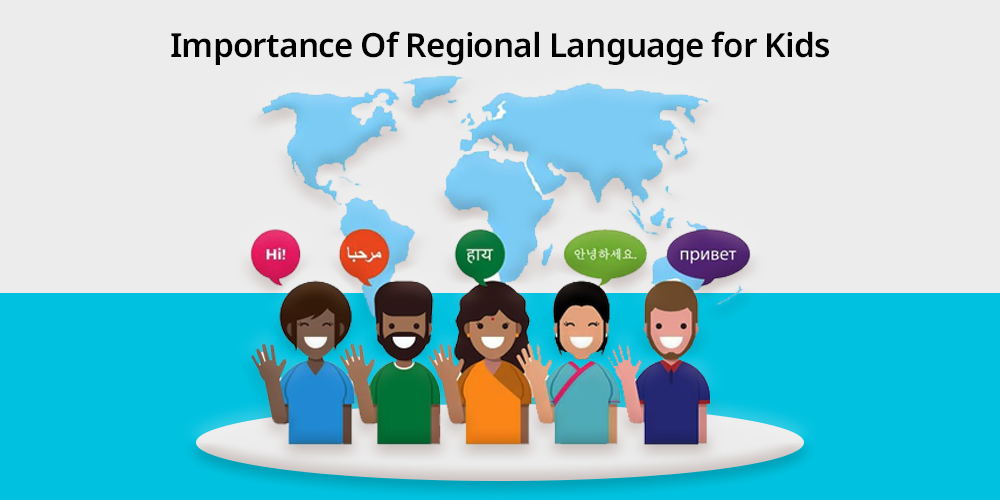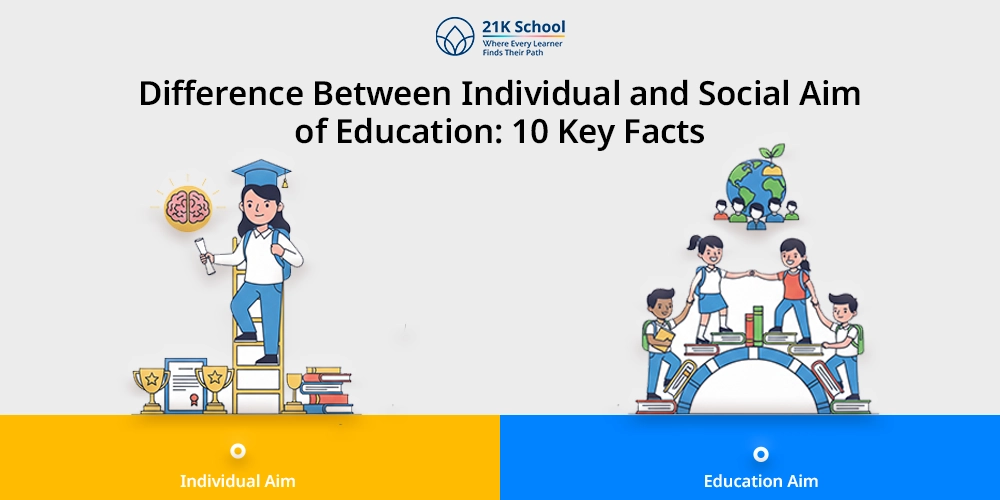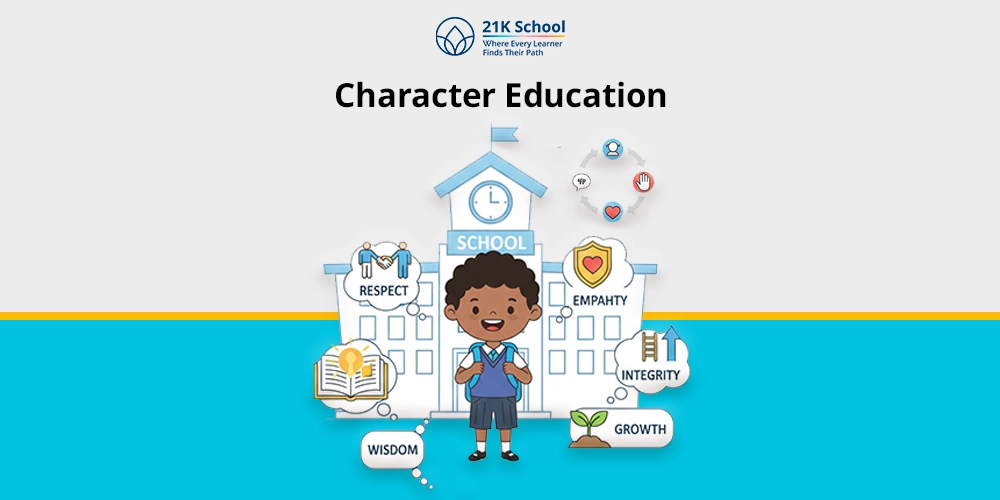
Have you ever thought why regional language is so important in today’s education? If not, you must read this.
Language in life is more than a means of communication. It is a representation of an individual’s identity, culture, history, and values.
For kids’ learning the early years are the most important especially for language development. This plays a major role in shaping their cognitive skills and social emotional skills.
As we know, importance of English language in the modern world. However, regional languages are equally beneficial.
Understand the benefits of learning a second language in students’ lives.
Here we will explore the importance of regional language development in children and how online schools can significantly contribute to this cause.
Let’s begin!
Contents
- Importance Of Regional Language Development in Children
- 1. Enhanced Cognitive Skills
- 2. Stronger Academic Performance
- 3. Preservation of Culture and Heritage
- 4. Improved Communication and Socialization
- 5. Improved Reading Skills
- 6. Sense of Belonging and Identity
- 7. Increased Confidence
- 8. Improved Parental Involvement
- 9. Better Preparedness for a Diverse World
- 10. Intercultural Understanding
- 11. Higher Attendance And Participation
- 12. Political Empowerment
- 13. Emotional Connection
- 14. Economic Opportunities and Career Growth
- Role of Online Schools in Promoting Regional Language Learning among Children
- Conclusion
Importance Of Regional Language Development in Children
As a parent we can relate learning different languages can be helpful in adjusting anyplace from school to personal community. Explore the benefits of learning a foreign language
However, the same as global language, regional language education has a positive impact on kids’ education.
Let’s elaborate the importance of regional language development in children in the 21st century.
1. Enhanced Cognitive Skills
Regional language is essential for enhancing cognitive skills in kids which foster better communication, social interactions, and overall learning.
Students with regional language skills perform better in problem-solving tasks, exhibit greater mental flexibility, and have improved memory.
To improve students’ 21st century skills one must read the importance of language skills
2. Stronger Academic Performance
Students with a regional language can achieve stronger academic performance.
They can easily demonstrate better comprehension, engagement, and retention of knowledge, leading to improved academic performance. It also helps in learning additional languages.
3. Preservation of Culture and Heritage
For preserving cultural heritage, regional language development in children is crucial. It fosters a deeper understanding of their roots and community, and promotes social cohesion.
Teaching children their native language not only helps them in the present but also passes down to future generations.
4. Improved Communication and Socialization
For improving communication and socialization skills, regional language offers a sense of belonging and understanding diverse cultures.
We all understand the importance of communication skills in students’ lives and this builds stronger relationships, and promotes a sense of belonging within the community.
5. Improved Reading Skills
Do you know how strong oral language skills help? It is built through regional language acquisition, forming a crucial foundation for reading comprehension and literacy development.
Kids read in a language they speak at home, the learning process becomes natural and less intimidating. This lifelong learning reduces illiteracy.
6. Sense of Belonging and Identity
Sense of belonging and identity means the language connects children to their cultural roots, empowers them to understand their heritage.
It is beneficial to strengthen their connection to family and community. For children it helps them to have an emotionally supportive environment.
7. Increased Confidence
One of the important benefits in education is to increase confidence in class and community.
By learning their native language, children gain a deeper understanding of concepts, improve their communication skills, and foster a stronger connection to their culture and community.
8. Improved Parental Involvement
Parents are more actively involved especially when children learn new things especially which are connected to their roots.
Learning language is a home literacy activity in which parents help to use the regional language at home.
It provides a stimulating language environment that contributes to the children’s language skills, school readiness, and academic achievement.
9. Better Preparedness for a Diverse World
Understanding regional languages leads to better preparedness for a diverse world.
Here children connect with their cultural roots, keeping traditions, stories, and customs alive for future generations.
It is very much important for kids’ open-mindedness and prepares them to thrive in a multicultural and globalized world.
10. Intercultural Understanding
Intercultural understanding means knowing the customs, traditions, and worldviews of that specific community.
It also promotes a sense of belonging and pride. Now children can access cultural content, like literature, music, and writings.
11. Higher Attendance And Participation
Language skills increase attendance and participation of students. It is particularly for young children, leads to higher attendance rates, increased participation in class, and improved learning outcomes.
This will help in enhancing academic performance and growth of children.
12. Political Empowerment
According to NEP language is a powerful tool in education. Children who learn their regional language can better understand local governance, rights, and policies.
This linguistic awareness can later translate into civic participation, enabling them to voice their opinions and advocate for their communities effectively.
13. Emotional Connection
The language allows kids to express and understand emotions within their cultural context. This emotional support helps in staying strong even in difficult situations.
This emotional connection enhances bonding within parents, families and society, reinforces a child’s emotional well-being.
14. Economic Opportunities and Career Growth
One of the main objectives or benefits of language is economic opportunities and career growth.
In countries like India with diverse linguistic demographics, professionals who can navigate regional languages are increasingly in demand.
It’s not just about adding one more skill, it’s about building trust and rapport with diverse audiences.
Role of Online Schools in Promoting Regional Language Learning among Children
In today’s digital revolution reshaping education is significant. Online schools such as 21K school are emerging as powerful allies in promoting regional languages among kids.
Education removes the barriers of distance, accessibility, and availability. This enables learning like never before.
Let’s understand the role of online schools in promoting regional language learning among children:
1. Provide Accessibility and Flexibility
Online schools offer increased accessibility and flexibility, breaking down geographical barriers and catering to diverse learning needs.
Now students can access quality education without any hustle and bustle.
2. Diverse Language Courses and Resources
Most of the online schools like 21K School provide diverse language courses and resources for child development.
It enables personalized learning experiences, and fostering cultural understanding and inclusivity.
3. Improved Digital Literacy
By providing access to interactive learning platforms and digital resources, online schools enable students to develop various skills.
Students can start with navigating digital tools, critically evaluating online information, and communicating effectively with peers in virtual environments.
4. Lifelong Learning Opportunities
Online schools provide accessible and personalized learning experiences, even in remote areas.
This leads to lifelong learning opportunities which cater individual needs and learning styles.
5. Benefits for Marginalized Communities
Online schools are beneficial for marginalized communities which enhance accessibility, flexibility, and personalized learning experiences.
Also read benefits of personalized learning in education.
With diverse language courses and continuous learning marginalized communities can be empowered and fosters linguistic diversity.
Conclusion
Learning different languages helps in sharpening minds especially in early stages of education. The importance of regional language development improves academic performance and cultural preservation.
The rise of online schools provides opportunities to integrate regional language education into life. It has become more feasible and effective than ever.
It’s time to embrace regional languages for communication and as powerful vessels of identity, pride, and progress for the next generation.
To improve academic and personal development, explore different kinds of communication activities for students


